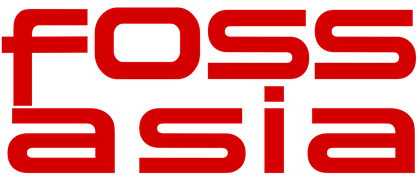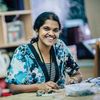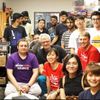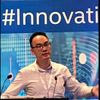Venue
Thursday, 19th Mar
Lecture Theatre
- Kiruthika Ramanathan (Senior Manager Science Centre Singapore), Roland Turner (OpenTech Summit Organising Team | Chief Privacy Officer FOSSASIA | TrustSphere)
- Talk
Senior Manager Science Centre Singapore
OpenTech Summit Organising Team | Chief Privacy Officer FOSSASIA | TrustSphere
Lecture Theatre
Thursday, 19th Mar, 10:00 - 10:10
- Open Tech Main Track
Founder FOSSASIA
Lecture Theatre
Thursday, 19th Mar, 10:10 - 10:40
- Open Tech Main Track
- Mario Behling ( OpnTec GmbH)
- Talk
OpnTec GmbH
Lecture Theatre
Thursday, 19th Mar, 10:40 - 11:00
- Hardware & Firmware
- Harish Pillay ( Red Hat), Lim Tit Meng ( CEO Science Centre Singapore), Tat Suan Koh (Dr) ( Ori9in), Roland Turner (OpenTech Summit Organising Team | Chief Privacy Officer FOSSASIA | TrustSphere)
- Panel Discussion
Red Hat
CEO Science Centre Singapore
Ori9in
OpenTech Summit Organising Team | Chief Privacy Officer FOSSASIA | TrustSphere
Lecture Theatre
Thursday, 19th Mar, 11:20 - 12:00
- Open Tech Main Track
Open source crossed the chasm into mainstream with users in all industries. Maintaining the users’ trust and sustaining innovation is key to open source’s success.
However, in a world where communities are passionate, multicultural, and primarily use online communication, it is challenging to move communities towards a shared vision in a frictionless, sustainable way. Community challenges can impact innovation, putting user adoption at risk and even more importantly, hurting community members.
Stronger open source leadership can address these challenges and there is a call for more leaders in every project. Good news! Every contributor is a leader either through self leadership, leading others, or leading the community, yet most people have never been trained on how to lead.
This talk provides the leadership the training you need and covers:
- Why strengthen community leadership
- Key leadership and emotional intelligence principles
- Practical ways to lead as a contributor
Open Source Strategist Google
Lecture Theatre
Thursday, 19th Mar, 12:00 - 12:30
- Internet, Society, Community
- Roland Turner (OpenTech Summit Organising Team | Chief Privacy Officer FOSSASIA | TrustSphere)
- Talk
OpenTech Summit Organising Team | Chief Privacy Officer FOSSASIA | TrustSphere
Lecture Theatre
Thursday, 19th Mar, 13:30 - 14:00
- Compliance & Legal
- Ben Sadeghi (Partner Solutions Architect Databricks)
- Talk
Partner Solutions Architect Databricks
Ben Sadeghi is a Partner Solutions Architect at Databricks, covering Asia Pacific and Japan, focusing on Microsoft and its partner ecosystem. Having spent several years with Microsoft as a Big Data & Advanced Analytics Technology Specialist, he has helped various companies and partners implement cloud-based, data-driven, machine learning solutions on the Azure platform.
Prior to Databricks and Microsoft, Ben was engaged as a data scientist with Hadoop/Spark distributor MapR Technologies (APAC), developed internal and external data products at Wego, a travel meta-search site, and worked in the Internet of Things domain at Jawbone, where he implemented analytics and predictive applications for the UP Band physical activity monitor. Before moving to the private sector, Ben contributed to several NASA and JAXA space missions.
Ben is an active member of the open-source Julia language community. He holds an M.Sc. in computational physics, with an astrophysics emphasis.
Lecture Theatre
Thursday, 19th Mar, 14:00 - 14:30
- Artificial Intelligence
- Luca Della Vedova (Embedded Systems Engineer Open Source Robotics Corporation)
- Talk
Embedded Systems Engineer Open Source Robotics Corporation
Lecture Theatre
Thursday, 19th Mar, 14:30 - 15:00
- Hardware & Firmware
- Morgan Quigley (Chief Architect Open Robotics )
- Talk
Chief Architect Open Robotics
Lecture Theatre
Thursday, 19th Mar, 15:20 - 15:50
- Open Tech Main Track
Librecast Project
Lecture Theatre
Thursday, 19th Mar, 15:50 - 16:30
- Internet, Society, Community
Friday, 20th Mar
Event Hall 2-1
- Jerome Walter (Field Chief Information Security Officer, APJ, Modern Applications Platform Business Unit (MAPBU) VMware)
- Talk
Field Chief Information Security Officer, APJ, Modern Applications Platform Business Unit (MAPBU) VMware
Event Hall 2-1
Friday, 20th Mar, 10:00 - 10:30
- Cloud, Containers, DevOps
Software Engineer Xendit
Event Hall 2-1
Friday, 20th Mar, 10:30 - 11:00
- Cloud, Containers, DevOps
FOSSASIA
Event Hall 2-1
Friday, 20th Mar, 11:00 - 11:30
- Cloud, Containers, DevOps
- Lothar Schulz (Engineering Manager REACH NOW)
- Talk
Engineering Manager REACH NOW
Event Hall 2-1
Friday, 20th Mar, 11:30 - 11:50
- Cloud, Containers, DevOps
- Saud Khan (Software Engineer Twitter)
- Extended Talk
How do we break down a large JVM monolith without incurring runtime costs? How do we scale dependency injection in such an application running in a constrained environment like mobile? Does it play well with a modularized Android app? How do you visualize and navigate the graph as complexity grows?
In this session we will describe the mechanisms that we use at Twitter to facilitate modularization and decoupling utilizing dependency injection. We will also cover why Dagger is our tool of choice along with the shortcomings we encountered, and share some practical advice on how to address them. Finally, we’ll offer a sneak peek of the extensions that we built on top of Dagger to facilitate dependency injection that we plan to open source in 2020.
Software Engineer Twitter
Event Hall 2-1
Friday, 20th Mar, 11:50 - 12:30
- Kernel & Platform
- Chin Hong Hua (Principal Solution Architect Red Hat)
- Extended Talk
Principal Solution Architect Red Hat
Event Hall 2-1
Friday, 20th Mar, 13:30 - 14:20
- Cloud, Containers, DevOps
- Shaun Norris (Field CTO, APJ, Modern Applications Platform Business Unit (MAPBU) VMware)
- Talk
Watch online: https://youtu.be/Ur65X6NLVKk
This talk will focus on the Five S’s: speed, stability, scalability, security and savings and how they can help shape a practical, useful and productive approach towards Kubernetes and containers in the enterprise. With Kubernetes taking a dominant position in enterprise technology planning, particularly for platform engineering teams, Shaun will share advice and good practices based on Pivotal’s global customer base and our 5+ years’ experience of running containers in production, at scale, for some of the world’s most interesting companies.
Field CTO, APJ, Modern Applications Platform Business Unit (MAPBU) VMware
Shaun serves as the Asia-Pacific and Japan Field CTO, where he helps organisations across the region align and shape their business’ strategy, with a path to connecting that strategy to technology execution.
With over 20 years of experience in tech, Shaun is passionate about helping organisations apply Lean, Agile and DevOps principles to achieve meaningful and tangible digital transformation results.
Having led teams large and small in diverse areas such as financial services (JP Morgan Chase and Standard Chartered Bank), security (Verisign and ESET), cloud (Amazon Web Services), and e-commerce startups (lastminute.com), Shaun brings a wealth of knowledge and experience in helping organisations meet their technology objectives.
Shaun holds a Masters degree in IT and business management from the University of Wales. He also still enjoys coding (most recently in python) and typically has a variety of side experiments / projects on the go.
Event Hall 2-1
Friday, 20th Mar, 14:30 - 15:00
- Cloud, Containers, DevOps
Software Engineer Acronis
Event Hall 2-1
Friday, 20th Mar, 15:00 - 16:30
- Cloud, Containers, DevOps
Software Engineer Collabora
Event Hall 2-1
Friday, 20th Mar, 16:30 - 17:00
- Cloud, Containers, DevOps
- Isham Mohamed (Senior Software Developer Kloudynet Technologies), M.M. Fathima Naja (ICT Lecturer South Eastern University of Sri Lanka)
- Talk
Senior Software Developer Kloudynet Technologies
ICT Lecturer South Eastern University of Sri Lanka
Event Hall 2-1
Friday, 20th Mar, 17:00 - 17:30
- Cloud, Containers, DevOps
Event Hall 2-2
BuildingBloCS
Event Hall 2-2
Friday, 20th Mar, 10:00 - 11:30
- Python
BuildingBloCS
Event Hall 2-2
Friday, 20th Mar, 11:40 - 13:10
- Python
BuildingBloCS
Event Hall 2-2
Friday, 20th Mar, 13:30 - 15:00
- Python
A*STAR
Event Hall 2-2
Friday, 20th Mar, 15:10 - 17:10
- Academy
Exhibition Stage
- Roland Turner (OpenTech Summit Organising Team | Chief Privacy Officer FOSSASIA | TrustSphere)
- Extended Workshop
OpenTech Summit Organising Team | Chief Privacy Officer FOSSASIA | TrustSphere
Exhibition Stage
Friday, 20th Mar, 14:00 - 16:30
- Science & Education
Training Room 2-1
- Chin Hwee Ong (Data Engineer ST Engineering)
- Talk
Data Engineer ST Engineering
Training Room 2-1
Friday, 20th Mar, 10:30 - 11:00
- Python
- Ben Sadeghi (Partner Solutions Architect Databricks)
- Talk
Pandas, the de-facto standard DataFrame implementation in Python, is very popular among data scientists, but it does not scale well to big data. It was designed for small data sets that a single machine could handle. On the other hand, Apache Spark has emerged as the de-facto standard for big data workloads. Today many data scientists use Pandas for coursework, pet projects, and small data tasks, but when they work with very large data sets, they either have to migrate to PySpark to leverage Spark or downsample their data so that they can use pandas.
Now with Koalas, an open-source implementation of the Pandas API on Apache Spark, data scientists can make the transition from a single machine to a distributed environment without needing to learn a new framework. In this talk, we'll go through the basics of Koalas, along with demos.
Partner Solutions Architect Databricks
Ben Sadeghi is a Partner Solutions Architect at Databricks, covering Asia Pacific and Japan, focusing on Microsoft and its partner ecosystem. Having spent several years with Microsoft as a Big Data & Advanced Analytics Technology Specialist, he has helped various companies and partners implement cloud-based, data-driven, machine learning solutions on the Azure platform.
Prior to Databricks and Microsoft, Ben was engaged as a data scientist with Hadoop/Spark distributor MapR Technologies (APAC), developed internal and external data products at Wego, a travel meta-search site, and worked in the Internet of Things domain at Jawbone, where he implemented analytics and predictive applications for the UP Band physical activity monitor. Before moving to the private sector, Ben contributed to several NASA and JAXA space missions.
Ben is an active member of the open-source Julia language community. He holds an M.Sc. in computational physics, with an astrophysics emphasis.
Training Room 2-1
Friday, 20th Mar, 11:10 - 11:40
- Python
- Poh Wei Jie (Student Republic Polytechnic)
- Lightning Talk
Student Republic Polytechnic
Training Room 2-1
Friday, 20th Mar, 11:50 - 12:10
- Python
n this workshop, we will dive into the popular PyGame library.
First we will learn about basic arcade game architecture:
- Game loops
- Game stats
- Game objects
- Game play
Director Women Who Code Singapore
Training Room 2-1
Friday, 20th Mar, 13:30 - 16:30
- Python
Training Room 2-2
- Johannes Ridho Tumpuan Parlindungan (Software Engineer Foodpanda/Delivery Hero Singapore)
- Talk
Software Engineer Foodpanda/Delivery Hero Singapore
Training Room 2-2
Friday, 20th Mar, 10:40 - 10:50
- Web Technologies
Tech Lead, Senior Software Engineer Rakuten
Training Room 2-2
Friday, 20th Mar, 11:00 - 11:30
- Web Technologies
- Web Assembly Introduction
- How web assembly is used in different platforms/languages (e.g. .NET, Python, Rust, etc)
- What's next on Web Assembly
Co-Organizer BigDataX
- Co-organizer at BigDataX: BigDataX is a sharing community to build up practical data processing literacy in Singapore and around the region. In line with this, we organize free workshops and events on data engineering. As co-organizer, I help prepare workshop materials and plan events for the data community in Singapore.
- Co-organizer at DataKind SG: DataKind is a non-profit organization which seeks to harness the power of data science in the service of humanity. Founded in New York in 2011, DataKind has since started chapters in UK, Singapore, Bangalore, San Francisco Bay Area, Washington DC and Dublin. Our DataKind Singapore chapter was founded in Aug 2014, and our goal is to connect data science volunteers with non-profit organizations to help them analyze their data for good. As co-organizer/co-lead, I liase with various non-profit organizations and plan monthly DataJam events which provide opportunities to volunteers (datascientists, developers, designers, etc) to help various non-profit organizations analyze data to gain insights into their programs allowing them to serve their communities better and achieve more.
- .NET Developer- served more than 12 years in the investment banking domain delivering end-to-end .NET solutions
- Speaker/Workshop Facilitator in local tech communities/conferences- .NET Users Group, Python Users Group, Data Science SG, FOSSAsia, PyCon APAC, etc.
Training Room 2-2
Friday, 20th Mar, 11:30 - 12:00
- Web Technologies
Saturday, 21st Mar
Event Hall 2-1
CSO MakerNet.org
Event Hall 2-1
Saturday, 21st Mar, 11:10 - 11:40
- Hardware & Firmware
- Vaidheeswaran Archana (Student Researcher National University of Singapore)
- Talk
Student Researcher National University of Singapore
Event Hall 2-1
Saturday, 21st Mar, 12:00 - 12:30
- Hardware & Firmware
- Jaro Šatkevic (Head of Product Mysterium Network), Sharmini Ravindran (Marketing Lead Mysterium Network)
- Extended Talk
Mysterium Network is building a distributed and permissionless VPN network. In our network providers are paid directly by consumers for providing VPN services.
Payments are a crucial element of Mysterium Network. As such, we needed to design a solution which was capable of meeting real-world requirements of scalability and affordability. This system also had to comply with the ethos of decentralised ecosystems. These are two opposing forces, with no solution fit for Mysterium Network readily available in the market.
The architecture of our payments system is a fusion of research and experimentation with existing Layer 2 solutions. But none of these fit our particular use case.Here were the main requirements of our proposed system:
- High throughput – the network’s ability to handle frequent and small payments (eventually thousands per second)
- Support for our native utility token, MYST
- Anonymity while also being secure, such as through the use of identity registration and reputation system
- Great user experience, removing as much complexity as possible for the end-user.
We also had to consider that consumers won’t pay a large amount up-front and the service providers (nodes) are unlikely to offer their services without prepayment.
Our proposed solution fuses together the technologies and methodologies used by other payment solutions, such as State Channels. Find out more about Mysterium Accountant and how payment promises (digital IOUs) will help solve micropayment challenges for decentralised VPN, CDN and SDN networks.Head of Product Mysterium Network
Jaro Šatkevic has spent the last 20 years managing IT projects, building products and running startup companies. His experience spans designing intranets, social networks through to business management apps with deep expertise in managing developers teams.
He has been actively looking over bitcoin and blockchain innovation since 2013.
In 2017 he founded blockchain consulting company Blockvis and was involved in actively developing solutions for various blockchain startups and ICO projects. He is currently head of product at Mysterium Network where he drives strategic decisions as to the growth of a distributed and permissionless peer-to-peer VPN network.
He is also an instructor of the WonHwaDo martial art.Skills & Expertise:
* Areas of interests: Bitcoin, Blockchain solutions, Programmable money, Smart contract development, Data driven product design, user experience (UX), Functional programming;
* Software development skills: Solidity, Python, JavaScript/NodeJS, React.js, Elixir;
Passions:
Martial Arts, Open Source, Crypto-currencies, Theology, Philosophy, Psychology.
Marketing Lead Mysterium Network
Event Hall 2-1
Saturday, 21st Mar, 13:30 - 14:00
- Blockchain
- why we moved from SaltStack
- why Puppet was chosen
- how to use Puppet OpenSource in painless way
- which orchestration tool to use with Puppet
- what is next
SP Digital
Event Hall 2-1
Saturday, 21st Mar, 14:00 - 14:30
- Kernel & Platform
I will be talking about an easily accessible, customizable, and modern, free and open-source time converter (handles time zones) that everyone can use (https://wlwl2.github.io/time-converter/). I will also briefly talk about using Nintendo Joy-Cons to deliver presentations.
Software Developer Boltiz
Event Hall 2-1
Saturday, 21st Mar, 14:30 - 15:00
- Web Technologies
- Xin Zhe Khooi (Ambassador Open Networking Foundation)
- Talk
Ambassador Open Networking Foundation
Event Hall 2-1
Saturday, 21st Mar, 15:00 - 15:30
- Internet, Society, Community
- Esther Payne ( Librecast Project)
- Extended Talk
Librecast Project
Event Hall 2-1
Saturday, 21st Mar, 15:30 - 16:20
- Internet, Society, Community
- Mario Behling ( OpnTec GmbH), Roland Turner (OpenTech Summit Organising Team | Chief Privacy Officer FOSSASIA | TrustSphere), Hong Phuc Dang (Founder FOSSASIA)
- Talk
OpnTec GmbH
OpenTech Summit Organising Team | Chief Privacy Officer FOSSASIA | TrustSphere
Founder FOSSASIA
Event Hall 2-1
Saturday, 21st Mar, 16:30 - 17:00
- Open Tech Main Track
Event Hall 2-2
AnalyticDB for MySQL is a high-performance data warehousing service from Alibaba Cloud. AnalyticDB for MySQL uses a distributed computing architecture that enables it to use the elastic scaling capability of the cloud to compute tens of billions of data records in real time.
In this talk, I will be sharing about AnalyticDB for MySQL, the underlying architecture and how we achieve it.Database Achitect Alibaba Cloud
Event Hall 2-2
Saturday, 21st Mar, 10:00 - 11:00
- Database
- Ricky Setyawan (Head of Consulting Datatech Integrator)
- Talk
Head of Consulting Datatech Integrator
Event Hall 2-2
Saturday, 21st Mar, 11:30 - 12:00
- Database
Chief Evangelist Percona
Event Hall 2-2
Saturday, 21st Mar, 12:00 - 12:30
- Database
- Difference between data collection and data management
- What could you do with the data on hand?
- Cost of data management (open source vs commercial products)
- The process of data management (collection of data ingestion of data,pre-processing, queries and value extraction)
- Story telling on your data (visualizations)- Demo on a simple use case / scenario
- Extra topics: monitoring and observability (apps and dashboard)
Education Architect Elastic
Event Hall 2-2
Saturday, 21st Mar, 13:30 - 14:00
- Database
- Francisco Munoz Alvarez (Founder and CEO CloudDB)
- Extended Talk
Founder and CEO CloudDB
Currently, Francisco works for CloudDB, which is a global leader in data management consulting and services, as the Founder and CEO. He also maintains an Oracle blog (http://www.oraclenz.org) and you can always contact him through this or Twitter (@fcomunoz) regarding any questions about database technologies.
Event Hall 2-2
Saturday, 21st Mar, 14:00 - 15:00
- Database
Exhibition Stage
- Eriol Fox (Designer Open Source Design and Humanitarian.design)
- Extended Talk
Open Design is a collaboration between Adobe, Designit and Ushahidi. Looking at increasing and sustaining design contribution to open source and advocating for OSS in design, and design in OSS.
Ushahidi builds OSS humanitarian tools, remotely for some of the most marginalized people across the globe. To tackle these systemic problems with how to ‘open source’ a design effort and bring the community along with the ‘on-staff’ Ushahidi designers, we piloted a series of design events on Ushahidi’s OSS crisis communication tool TenFour with our partners Designit and Adobe. Together, we’re looking to solve the problems with how open source design can work by engaging through meaningful technology that makes a difference in the world.
In this session, we’ll briefly cover the history of the project and the main problems we attempted to solve and we’ll present the learning and adaptions to our workshop framework and methodology that aims to engage design teams and individuals that are not yet ‘on-board’ with OSS as an ethos or movement.
Looking into some the abstract deeper motivations for design professionals to contribute but also some practical tips on structuring issues, labelling and maintaining design (and extended functions like research, UX and product management) you’ll leave with a set of tools and methods you can apply to your OSS to engage with designers.
Designer Open Source Design and Humanitarian.design
Exhibition Stage
Saturday, 21st Mar, 11:30 - 12:30
- Design
Mozilla Rep Mozilla
Exhibition Stage
Saturday, 21st Mar, 13:30 - 14:00
- Web Technologies
- Aman Sharma (WG Member/ CTO AMP / Twimbit)
- Talk
- Why no to Native apps ?
- PWA and its advantages
- Creating PWA in 4 easy steps
- Launching PWA to Play Store
- Creating Fast app
- What is AMP
- How AMP works
- AMP offerings
- Learning AMP
- Contributing to AMP.
WG Member/ CTO AMP / Twimbit
CTO by Profession Open Source , community lover by Heart.
- CTO and Co-founder at Twimbit , Singapore.
- Founder of Atlancey & KiEvents , India
- Former Recommender System Engineer at Upsell.ai , Greece
- Former Web Engineer at Tomorrow Systems , Italy
- Former Research Engineer at TU Wien, Austria
Before successfully exiting 2 tech startups, he worked with many foreign and Indian Startups at various roles in the field of Web technologies and AI especially in recommender systems and hybrid app developments.He has done his engineering in Computer science from BIT Mesra, Ranchi. He did his research in recommender systems , ML from TU Wien and deployed AI system stack for hotels in Europe.
Area of Interest and Expertise
- ML and AI
- Cloud
- Big Data, Data Science and Analytics
- Recommender Sytems
- Web Applications
- Microservices
- CMS( Wordpress)
- PWA and AMP
- PHP, JS , ReactJS , Python, Flask
- Automations and Integrations
- IoT
Exhibition Stage
Saturday, 21st Mar, 15:00 - 15:30
- Web Technologies
Training Room 2-1
- Soham Chatterjee (Graduate Student NTU), Anjali Menon ( National University of Singapore)
- Workshop
Graduate Student NTU
National University of Singapore
Training Room 2-1
Saturday, 21st Mar, 10:00 - 11:00
- Science & Education
Head/Technology Projects ITE College West
Training Room 2-1
Saturday, 21st Mar, 11:10 - 11:40
- Science & Education
AI holds great promise to advance technology, increase efficiency and introduce revolutionary tools into our lives. However, AI and other data analytics systems have often been implemented without proper safeguards, and have exacerbated certain social ills. In recognition of the potential risks, the Personal Data Protection Commission (PDPC), a government agency, published “A Proposed Model AI Governance Framework” in January 2019. The Model Framework introduced some safeguards for the development and deployment of AI, and encouraged companies to adopt those safeguards in their internal governance. The PDPC called on the public to provide feedback, so as to improve upon the current proposed framework.Answering the call for feedback, DataKind SG in partnership with Effective Altruism SG have prepared a detailed paragraph-by-paragraph response to the model framework. https://npwg-ai-sg.github.io/
DataKind SG
Datakind
Training Room 2-1
Saturday, 21st Mar, 12:00 - 12:30
- Artificial Intelligence
- Kenji Kawanobe (Software engineer Japan System Laboratory Inc)
- Talk
Software engineer Japan System Laboratory Inc
- Name:Kenji Kawanobe
- Birth Date: July 15, 1994
- Gender: male
- Birthplace: in Tokyo, Japan.
- Nationality: Japanese
- Japan System Laboratory Inc. : Mar. 2019 to Present
- Software engineer
- Development of smart phone app and browser app using vue.js and GCP
- Keyware Solutions Inc. : Apr. 2017 to Mar. 2019
- Software engineer
- Development of ERP package for trading companies using Java
- HOSEI UNIVERSITY, Tokyo : Apr. 2013 - Mar. 2017
- Bachelor of Computer Science
Training Room 2-1
Saturday, 21st Mar, 13:30 - 14:00
- Artificial Intelligence
AI Innovation is one of the key pillars in AISG to help accelerate the adoption of AI. Our activities are centred on 3 themes: LearnAI, DoAI and ShareAI.
DoAI provides AI software tools and advisory services to accelerate the adoption of AI by the industry. Amongst our offerings is AI Bricks which are developed by AISG’s engineers and are available as downloadable tools, libraries, and assets for open source software or APIs.
In this talk, Tern Poh will share about AISG's journey of creating open source solutions inspired by real-world projects and common AI requests from the industry. He will also give an overview of the available pre-built solutions, the key technologies powering them, and their potential use cases.
Senior AI Engineer AI Singapore
Tern Poh is a Principal AI Consultant at AI Singapore. He provides consulting services to enable customers to undertake the development and implementation of AI minimum viable models within their organisations. He is also on secondment to Singapore's National AI Office (NAIO) to provide his technical expertise on AI and a visiting mentor at 500 Startups.
Before these, he was on secondment to the Singapore's Government Technology Agency (GovTech) as the Data Science & AI Programme Manager to assist in the building of analytics capabilities across the whole-of-Government.
Tern Poh started his career as a trainee trader at Bunge before becoming the APAC Purchasing Manager (IT Innovation) at Procter & Gamble. Coming from a commercial background, he understands the importance of bridging engineers, clients and stakeholders to translate analytics insights into impact at scale. He is excited about combining his AI knowledge and capability to create exponential value for businesses and society.
Tern Poh is pursuing Master of Computing (AI) at National University of Singapore. He holds a Bachelor of Business Management (Finance & International Trading, Cum Laude) from Singapore Management University and Advanced Diploma (Biomedical Sciences) from Republic Polytechnic.
Training Room 2-1
Saturday, 21st Mar, 14:30 - 15:00
- Artificial Intelligence
- Michael Christen (Founder SUSI.AI)
- Talk
Founder SUSI.AI
Training Room 2-1
Saturday, 21st Mar, 15:00 - 15:30
- Artificial Intelligence
- Yi Sheng Siow (RPA Engineer AI Singapore)
- Extended Workshop
- Using TagUI in common web scraping tasks
- Using TagUI in common desktop interactions
RPA Engineer AI Singapore
Training Room 2-1
Saturday, 21st Mar, 15:30 - 16:20
- Artificial Intelligence
























































